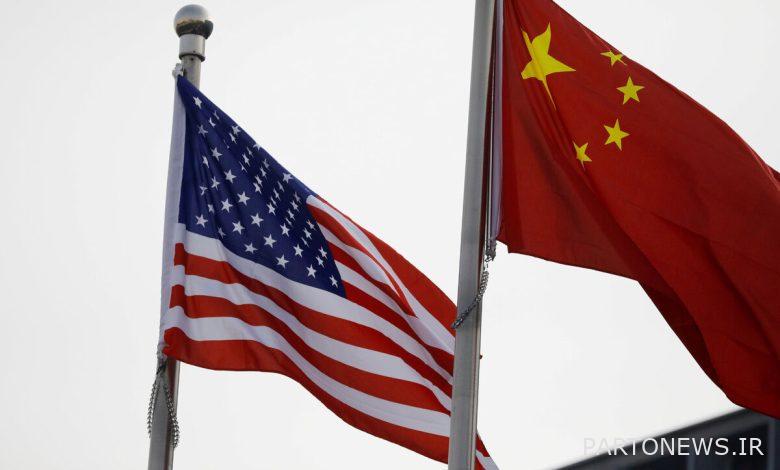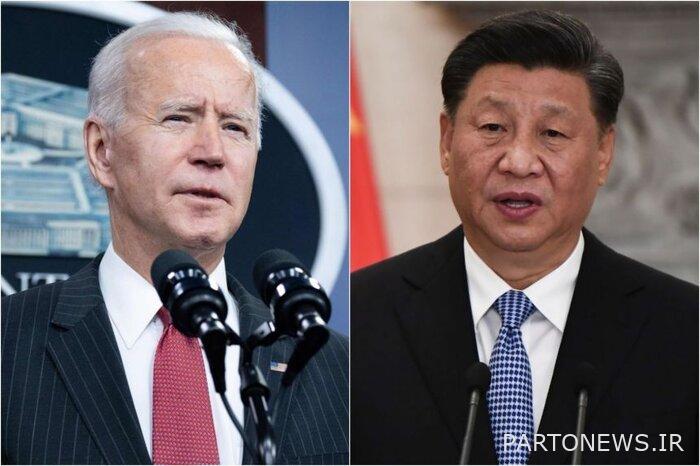Sino-US strategic relations, cooperation or competition?

Because the United States continues to see the country as a silent threat to its own interests, and by intervening in East and Southeast Asia, it is trying to justify Beijing’s interactive-competitive approach to Washington with full competition policy. Answer because he thinks of nothing but stopping China’s growth and imposing more restrictions on it in the form of hard power.
For this reason, analysts believe that bilateral relations continue to face obstacles to becoming strategic.
According to IRNA, quoting the European news site “Modern Diplomacy”, during 2020, Beijing has taken measures aimed at maximizing China’s power in the face of maximum US pressure.
At present, China has changed its approach to the administration of current US President Joe Biden in order to increase its economic interests, and it even seems to have established diplomatic relations with neighboring countries such as Japan, South Korea and ASEAN. Increase it.
The report adds that China’s actions are aimed at challenging the West and proving its power.
“China’s actions do not mean that it should always do so,” said Xi Yinhong, a professor of international relations at Renmin University in China, analyzing the current state of relations between Washington and China.
It is worth noting that the US government has made many efforts in recent years to confront China.
Relations between Washington and Beijing have experienced many ups and downs over the years on various issues, including the trade war, the outbreak of the Corona virus, and so on.
For the past half-century, China and the United States have been at loggerheads over various issues, with China playing a major role in opposing unilateralism and advocating multilateralism, and the United States concerned about the rapid growth of China’s economic wheels. Has made itself available to challenge China politically and economically.
Statistics from the World Bank show that while Covid-19 has plunged the world economy into an unprecedented coma, China is taking a different path.
The latest Chinese government statistics show that the country’s economy in 2021 has grown significantly compared to the previous year and has experienced 8.1 percent growth, which is the highest economic growth in the last 10 years.
According to Kyodo News, one of the main reasons for the increase in China’s economic growth last year was the improvement of the corona outbreak in this country.
The rate of economic growth is much faster than the 2.2 percent growth in 2020, which indicates an increase in consumer confidence and companies in this Asian country that has succeeded in controlling this deadly virus.
US efforts to slow China’s economy
US President Joe Biden recently signed a $ 770 billion defense bill, one of the clauses of which is to counter China’s military expansion.
The $ 24 billion military bill, more than he’s requested, is a setback for anti-war liberals in the United States as they try to increase social spending by moderate Democrats, according to the WWE Today. Has not resulted.
Congress has increased funding for almost all parts of the US military, including the amount needed to counter China’s military expansion, security assistance to Ukraine, and billions of dollars spent on upgraded aircraft, ships and up-to-date hardware.
Economists believe that Washington will not be able to maintain its competitive advantage over Beijing, despite the US president’s efforts to invest in its infrastructure and the victory in tensions between the US and China.
Earlier, the American news site “Politico” wrote in a report that the US President presented the bill of a $ 1 trillion investment package in the field of US infrastructure in the Senate. According to experts, the bill was introduced with the aim of continuing the rivalry between the United States and China.

Biden’s approach to China
Biden has continued Donald Trump’s tough stance on Beijing since taking office, despite disagreements with his predecessor, according to a report in Foreign Policy.
Biden, like Trump, believes that the United States should separate from China by reducing its dependence on Chinese products and supply chains for the purpose of US economic growth and national security.
Of course, Biden is not alone in this approach, and is supported by Democrats and Republicans alike.
However, despite the support of the two parties, the separation of the US economy from China is an important issue. If the government is to succeed, it must not only have to make changes in large parts of its global economy, but it must also involve other countries, which are large trading partners and Chinese investors. Undoubtedly, achieving both of these goals is much more difficult than what many in Washington expect.
A look at Biden’s current policies toward China shows that his approach is somewhat similar to Trump, but a little more lenient.
Last June, the White House unveiled a comprehensive plan to boost national production to reduce Washington’s dependence on fragile global supply chains, especially those of Chinese origin. .
Biden, meanwhile, has maintained a tariff increase on Trump’s imports from China and has taken steps to ban US companies from investing in 59 Chinese companies with ties to the military or producing surveillance equipment. .
Biden and congressional Democrats are also pushing for large investments to reduce US reliance on key imports from China.
This approach is the goal of the Innovation and Competition Act introduced by Chuck Schumer, the leader of the Democratic majority in the US Senate.
Under the law, about $ 250 billion will be spent on promoting new technologies in the United States, which the Chinese government is trying to develop. Artificial intelligence, quantum computing, computer chips, robots and lithium-ion batteries in smart devices and electric vehicles are some of the technologies that the United States is trying to expand in competition with China.
Meanwhile, critics of economic segregation, particularly the US Chamber of Commerce, warn that any disruption in supply chains will exacerbate production delays and force companies and consumers to pay more.
As a result, Biden is facing urgent demands from American companies to end Trump-era tariffs.
In addition, China has previously threatened to cut imports from the United States if the Schumer bill becomes law, potentially hurting US farmers and energy producers.
Efforts to reduce dependence on China, on the other hand, have had an impact on American consumers. Because Trump acted unilaterally, the consequences of his secessionist strategies were felt only by the US economy.
In fact, Trump has increased the cost of Chinese-made goods to American consumers by raising tariffs on imports from China, which is estimated to cost about $ 80 billion in 2018 alone.
The United States and the European Union are currently making new efforts to prevent intellectual property theft in areas such as wind turbine software and telecommunications and automotive technology.
But the EU’s lack of cooperation with Biden against China does not mean that the EU is in a hurry to reduce its dependence on China. According to European trade experts, the cessation of EU cooperation with China will slow economic growth on the continent.
EU multinational corporations operating in China are also well aware of the importance of the Chinese market.
“Complete separation … is harmful to us,” said former German Chancellor Angela Merkel.
Undoubtedly, the potential negative points of secession from China for the European Union are enormous. Statistics show that the EU’s trade with China reached $ 745 billion in 2020. This year, China, not the United States, became the European Union’s largest trading partner for the first time.
In the end, the United States and China as a whole are rivals economically, geopolitically, spheres of influence, and on energy and security issues, while at the same time trying to get closer to their common rivals. In other words, this contradiction does not provide the ground for a real and full-fledged strategic relationship between the two countries.
In general, Sino-US relations will be warming up, both in terms of mutual ties and in the field of international interests (preventing the unipolarization of the world, etc.), but it seems that until further notice, both in the economic field and in the field. There will be no military, strategic and allied dimensions.
.

